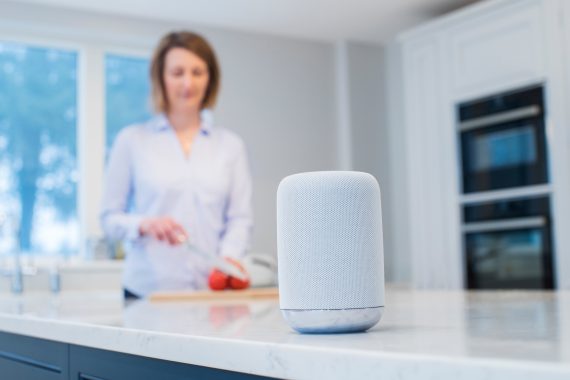Government to partner with Amazon’s Alexa to offer NHS health advice

Patients will soon be able to ask their Alexa device for a diagnosis after the health secretary announced a partnership between the NHS and Amazon.
The partnership will see the voice-controlled devices relay information from the NHS Choices website to patients when they list their symptoms to the device.
The Department of Health and Social Care confirmed to Pulse that new health secretary Matt Hancock will unveil the partnership in his first speech in the role at West Suffolk Hospital today.
This forms part of a commitment to invest nearly half a billion pounds (£487m) in hospital technology, Mr Hancock will say today, as he sets out his three priorities for health and social care as workforce, technology and prevention.
Mr Hancock will say the technology investment will make the NHS the ‘most advanced in the world’.
According to the Sun, Mr Hancock hopes that patients being able to ask Alexa for helath advice will take pressure off the NHS by keeping people with minor illnesses out of GP surgeries and A&E.
Mr Hancock will say: ‘We are working with Amazon so NHS Choices health information can be tailored for voice-activated devices.
‘Currently, if you ask Alexa about your back pain, you don’t know where the answer will be sourced from.
‘We will change this so questions of this sort will mean you receive the expert advice prepared by the NHS.’
The Department of Health and Social Care is also planning similar symptom checkers for other voice-activated devices such as Google Home and Apple HomePod.
Mr Hancock, who was previously digital, culture, media and sport secretary, became health secretary last week when Jeremy Hunt was made foreign secretary.
Mr Hancock will say in today’s speech that the NHS has to be ‘clear’ that ‘tech transformation is coming’.
‘The opportunities of new technology, done right across the whole of health and social care, are vast. Let’s work together to seize them.’
Since Mr Hancock’s appointment, it has been revealed that he is a a patient of Babylon’s controversial GP at Hand app, describing the service as ‘brilliant’.
Babylon recently claimed its app is able to provide clinical advice to patients that is ‘on par’ with GPs – a claim which GP leaders called ‘dubious’.
Just finalising my first speech as Secretary of State for Health & Social Care – setting out my early priorities tomorrow pic.twitter.com/lQXV1w6l5V
— Matt Hancock (@MattHancock) July 19, 2018
But, responding to the tweet, Bassetlaw GP and former NHS Clinical Commisisoners co-chair Dr Steve Kells said: ‘Technology is a tool, not an outcome in itself. In itself it will not affect the health of the nation or workload for the NHS. Systems, workforce, team building, communication, prevention, social care and carer support all come before technology (which enables the rest).’
Londonwide LMCs chief executive Dr Michelle Drage added that ‘tech is an enabler, not the panacea’.
Dr Farah Jameel, BMA GP committee executive team IT lead, said: ‘Research has shown that there are more than 50 million GP consultations each year for minor complaints, including blocked noses, dandruff and travel sickness, costing the NHS billions that could be better spent providing care to those who need it. Therefore we encourage patients to use a range of resources to practice self-care before visiting their GP, one of these being NHS Choices.
‘It is a positive step that Amazon will be directing them to a reliable source that is clinician-led. However, if patients have any serious health concerns they should not hesitate to contact their practice or visit an urgent care facility.’
Pulse July survey
Take our July 2025 survey to potentially win £1.000 worth of tokens











